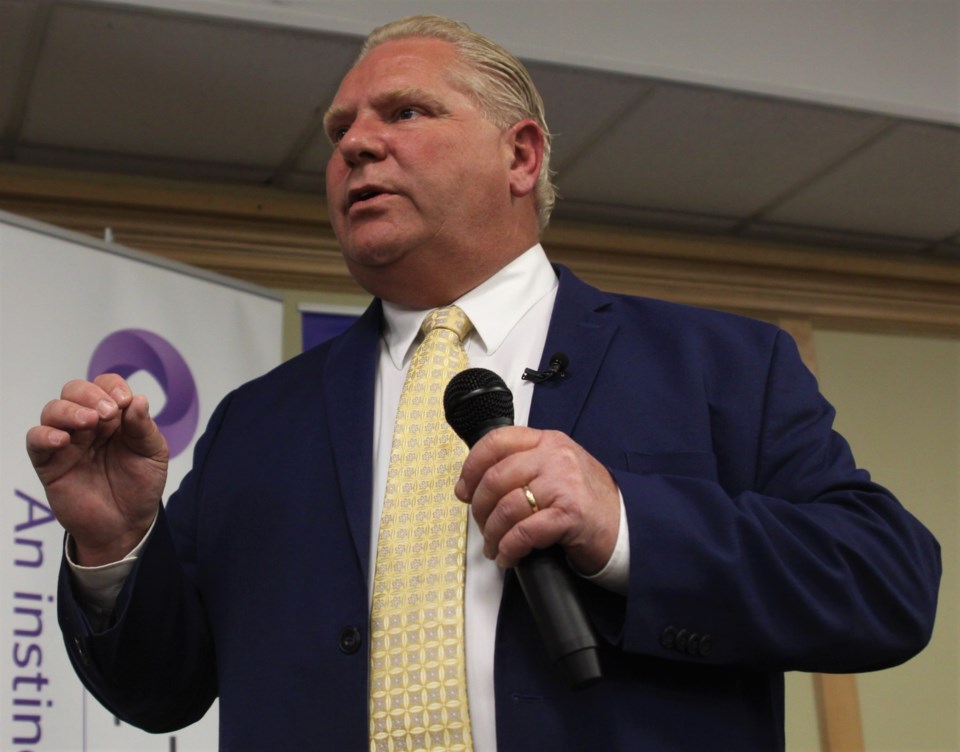THUNDER BAY - Those living in the province of Ontario who have not yet received the COVID-19 vaccine will see limitations when it comes to accessing some public settings as the provincial government outlines its plans for a vaccine passport.
As of Sept. 22, people living in Ontario will be required to provide proof of a COVID-19 vaccination when accessing higher-risk indoor settings, including restaurants and bars, nightclubs, meeting and event spaces, fitness facilities and gyms, sporting events, casino and bingo halls, concerts, music festivals, theatres and cinemas, strip clubs, and racing venues.
Premier Doug Ford, along with Minister of Health Christine Elliott and chief medical officer of health Dr. Kieran Moore, detailed the plans during a media conference from Queen’s Park on Wednesday.
Ford said the province has made a great deal of progress in fighting the pandemic and its staged approach to reopening the economy has helped slow the spread.
“Despite this progress, like many jurisdictions, we find ourselves facing a fourth wave as we enter the fall months and people head indoors. We will do whatever it takes to meet these challenges head on,” Ford said.
“The delta variant is here and it’s a threat, particularly to those who remain unvaccinated. If you are unvaccinated you are 27 times more likely to end up in hospital if you get COVID and 42 times more likely to end up in ICU.”
On Oct. 22, the provincial government will introduce a digital vaccine passport with a QR code for smartphones. Prior to the release of the digital certificate, individuals can present a vaccine receipt and photo identification. Those who have legitimate health reasons for not being vaccinated will be exempt.
The idea of a vaccine passport had previously been rejected by Ford and Elliott, with local public health units across Ontario saying they would be willing to implement a vaccine passport plan if the provincial government refused.
Ford said he called on the federal government to introduce a national vaccine passport system but said the province needed to take action now.
“Because it’s clear, a national system is far better than a patch work of certificates across every single province and territory,” he said.
In recent weeks, the number of new COVID-19 cases in Ontario has been increasing, with unvaccinated individuals accounting for the majority of new cases.
There were 656 new cases reported on Wednesday, up from 525 reported the previous day. There are also 339 people in hospital across the province with COVID-19 and 163 in the ICU.
Province-wide, 76.4 per cent of the population is full immunized, but Elliott said more Ontarians need to be vaccinated to reduce new infections and hospitalizations.
“The threat of COVID-19 and the delta variant remains strong and continues to pose a risk until we achieve higher vaccination rates,” she said. “This initiative will help manage the fourth wave while also keeping our schools and businesses open. Increasing vaccination rates is the path forward out of this pandemic.”
“The months ahead will be challenging and it is vital that everyone eligible to receive both doses of the COVID-19 vaccine do so,” Moore added. “The majority of new cases, hospitalizations are in unvaccinated or partially vaccinated people.”
